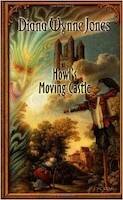Review: The Devil All the Time
/3 stars. Bleak and brutal and everything I expected it to be. This is true Southern Gothic at its best - and its most violent. I'm actually not sure I'll watch the movie, despite the great cast, because it's not the type of story I'd like to see unfold before my eyes other than through words. Like all excellent Southern literature, the setting is a character - sometimes the antagonist, sometimes the narrator, sometimes a neutral observer, sometimes a driving force behind the events that shape the story. It's difficult to imagine this narrative dropped somewhere - anywhere - else and remaining just as captivating; just as good.
I am from the suburbs of Northern Virginia and therefore cannot possibly fully understand the potency of this novel, but I'm incredibly curious if anyone from a similar area experiences pangs of ... recognition? Gratitude? Horror? while reading this story. I'm personally fascinated by the way place shapes a person, so naturally I want to sink my teeth in from that angle. But there's so much here about people, just people. It's about a young boy and the inevitable, twisted impact of his sick and traumatized parents; a murderous couple desperate to answer the call of their criminal instincts; sad and lonely residents of sad and lonely places just trying to survive in damaged ways.
There's also a symmetry to this story, against which some readers might chafe, but to me it just seemed like narrative planets circled each other before finally kissing in brief and terrible ways. Sort of like ... life is a pretty but very painful carousel. I'm super impressed with the way Pollock wrote women, as well. He managed to capture some nuances of the female character that many authors couldn't dream of spelling let alone writing down.
I feel a bit hungover from this, a bit like I'm looking at the world through different colored lenses. Pollock doesn't simply lock the door - he locks you in a room of dirt and tears and blood and makes you sit there, wallowing in it, for hours. It's enough to knock you down and make you think for a bit. But I'm glad to have read it, and I'm glad to have experienced Pollock's strong voice and unique vision. It's not for the faint of heart, but we all need a good slap in the face every once in a while.
The Devil All the Time on: Amazon | Bookshop.org | Goodreads










